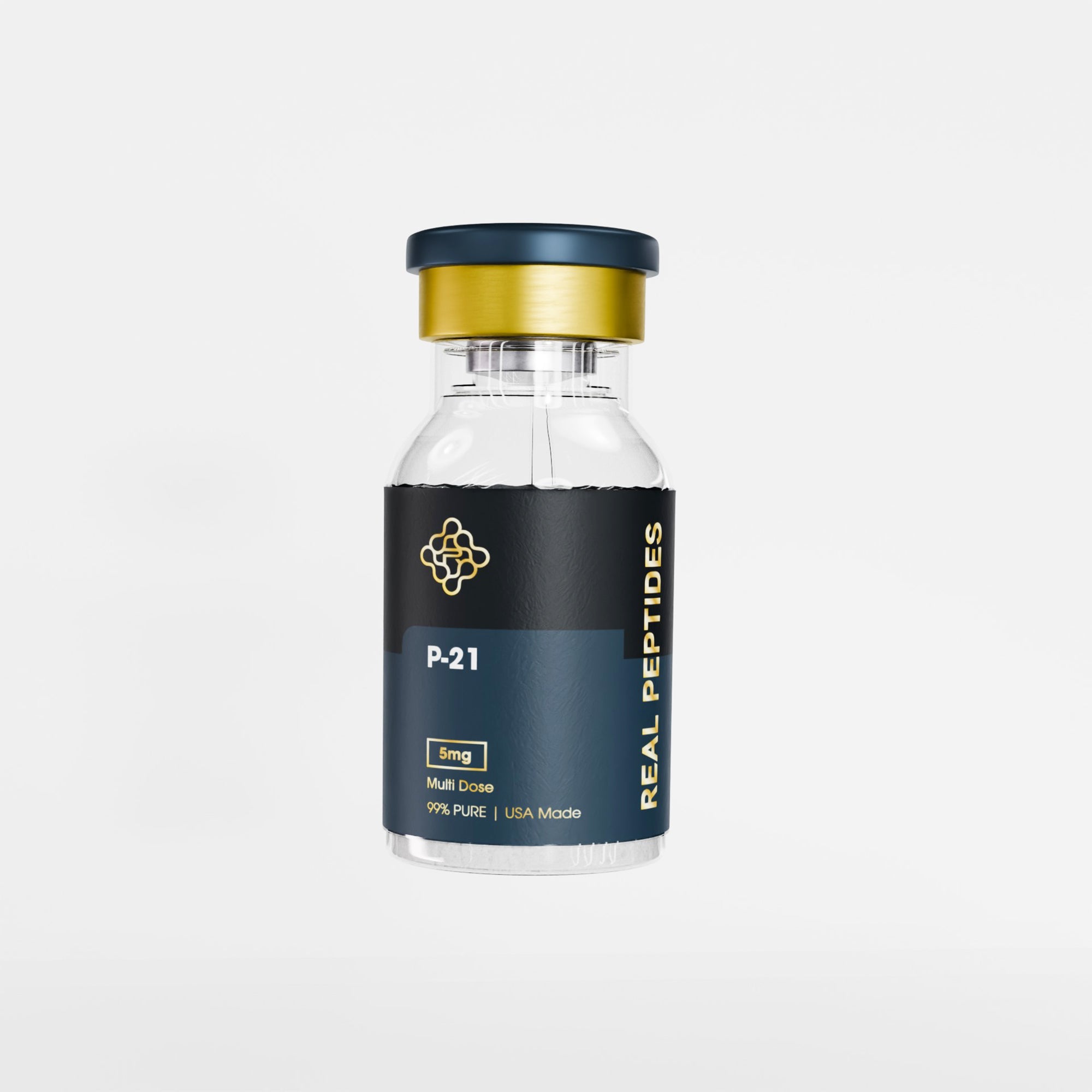
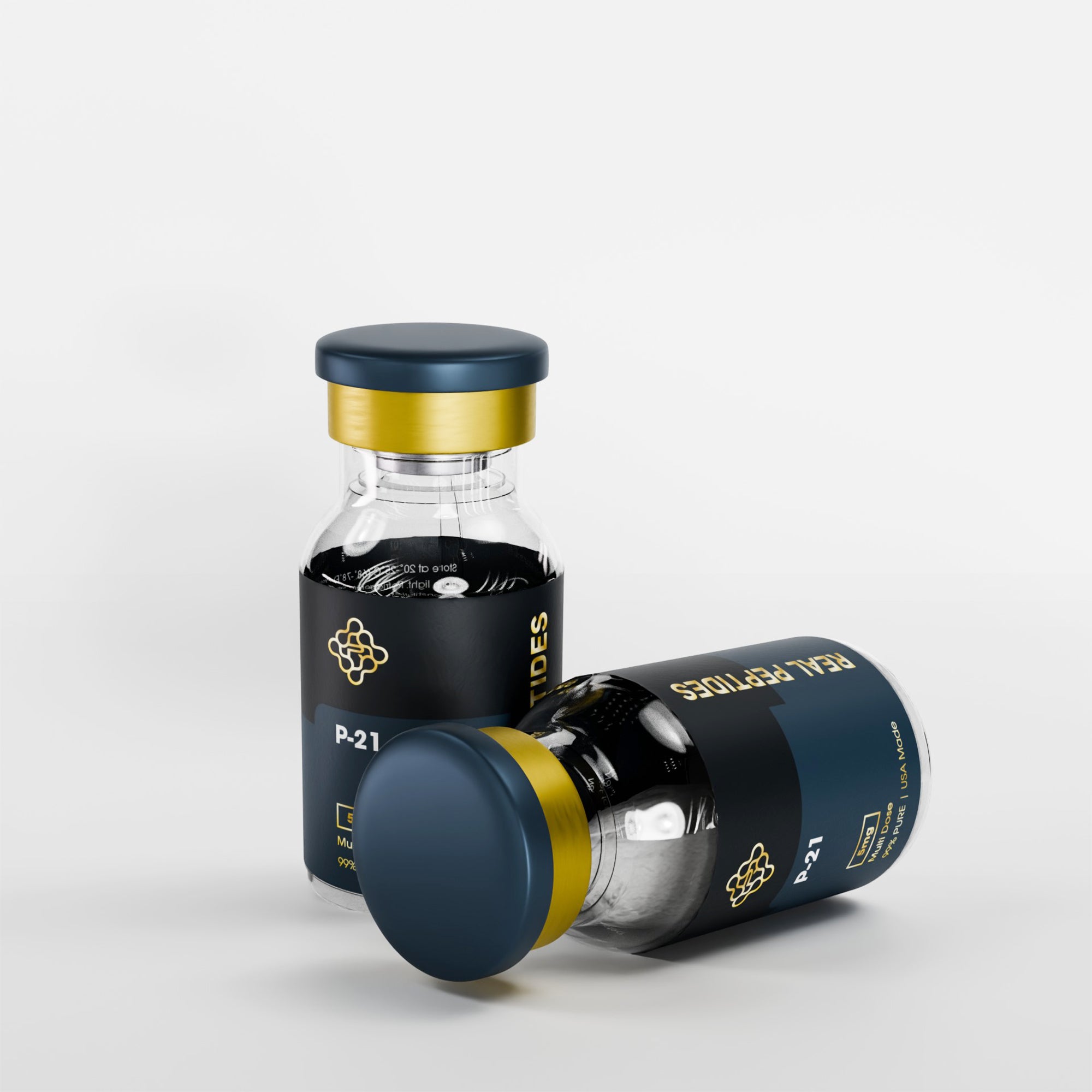
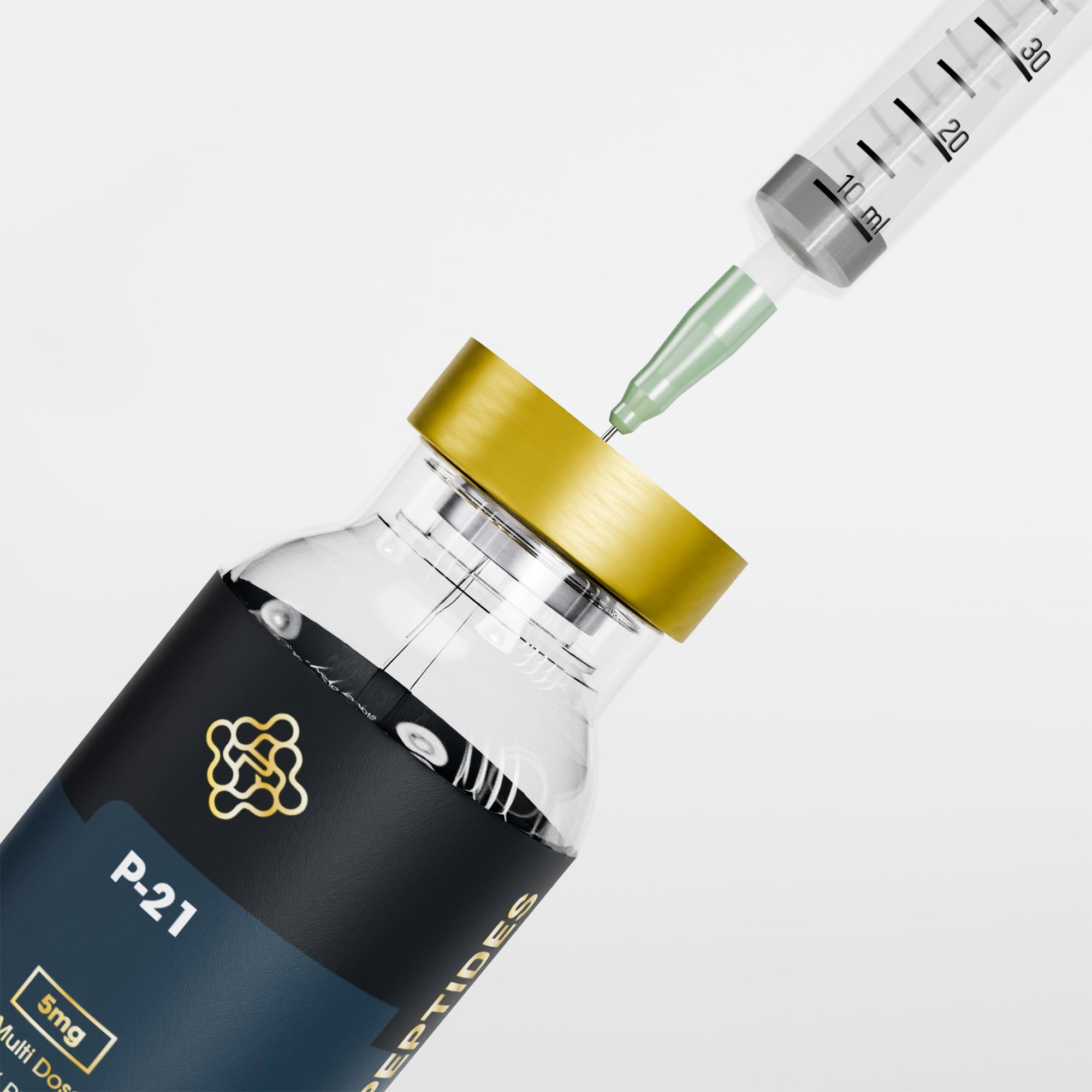
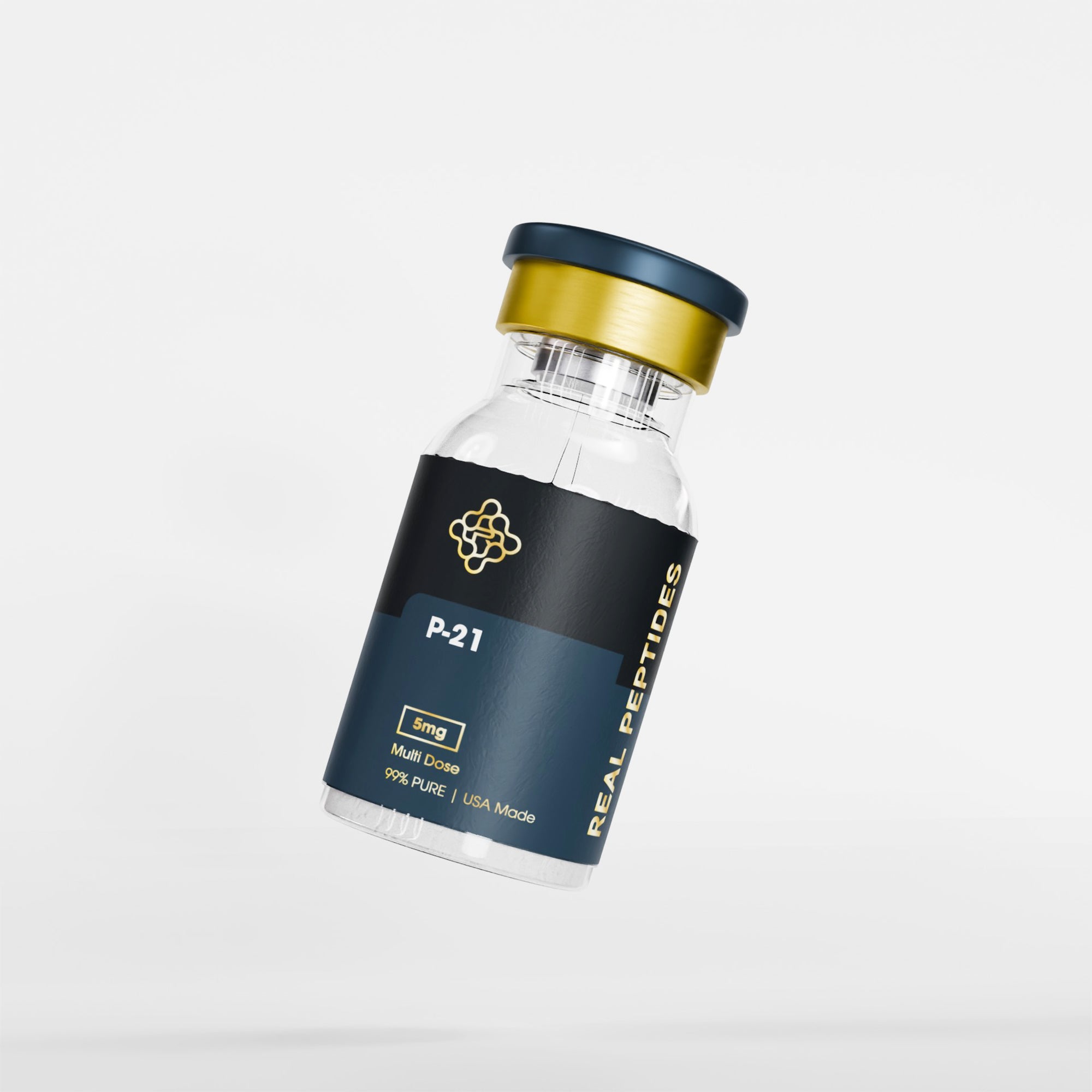
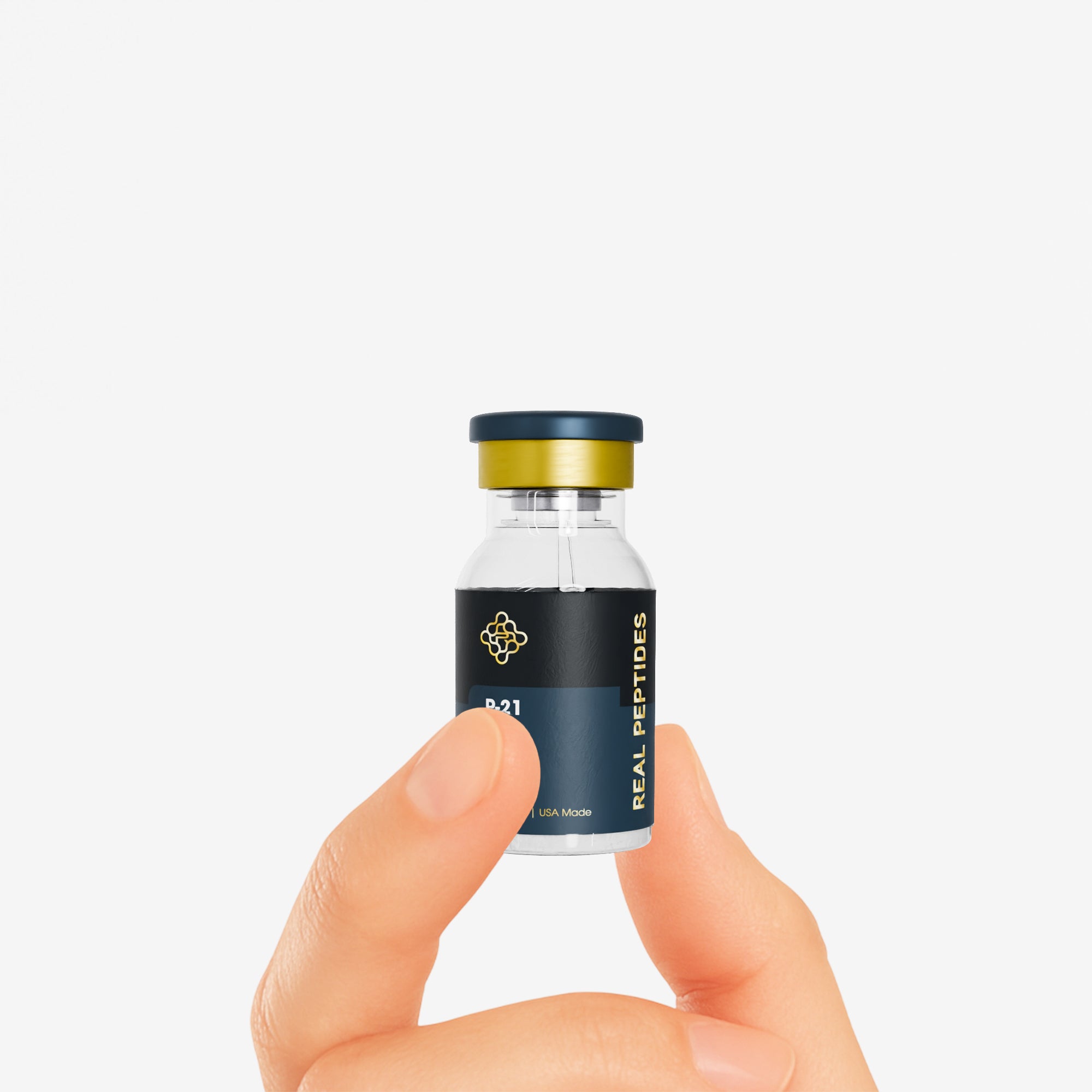
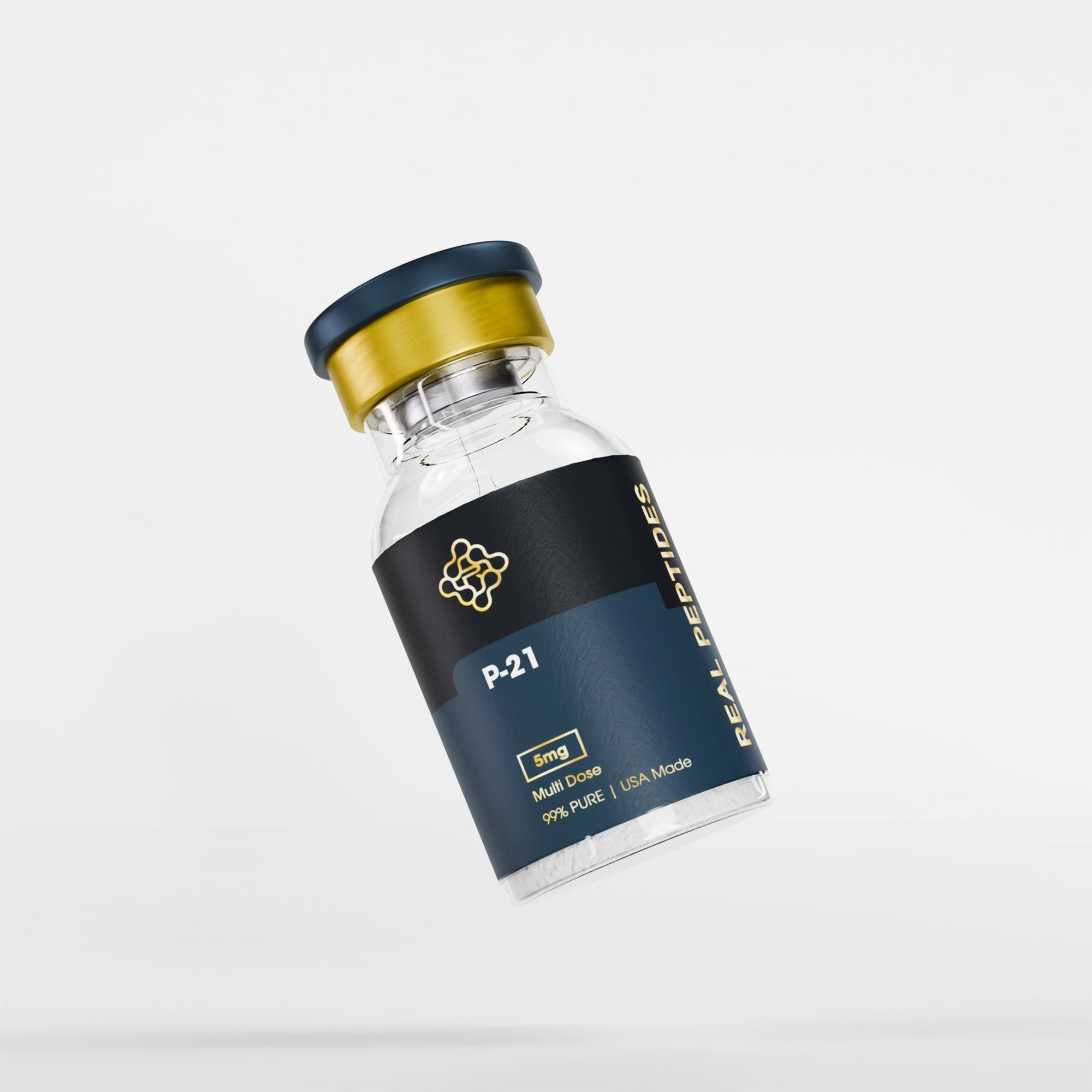
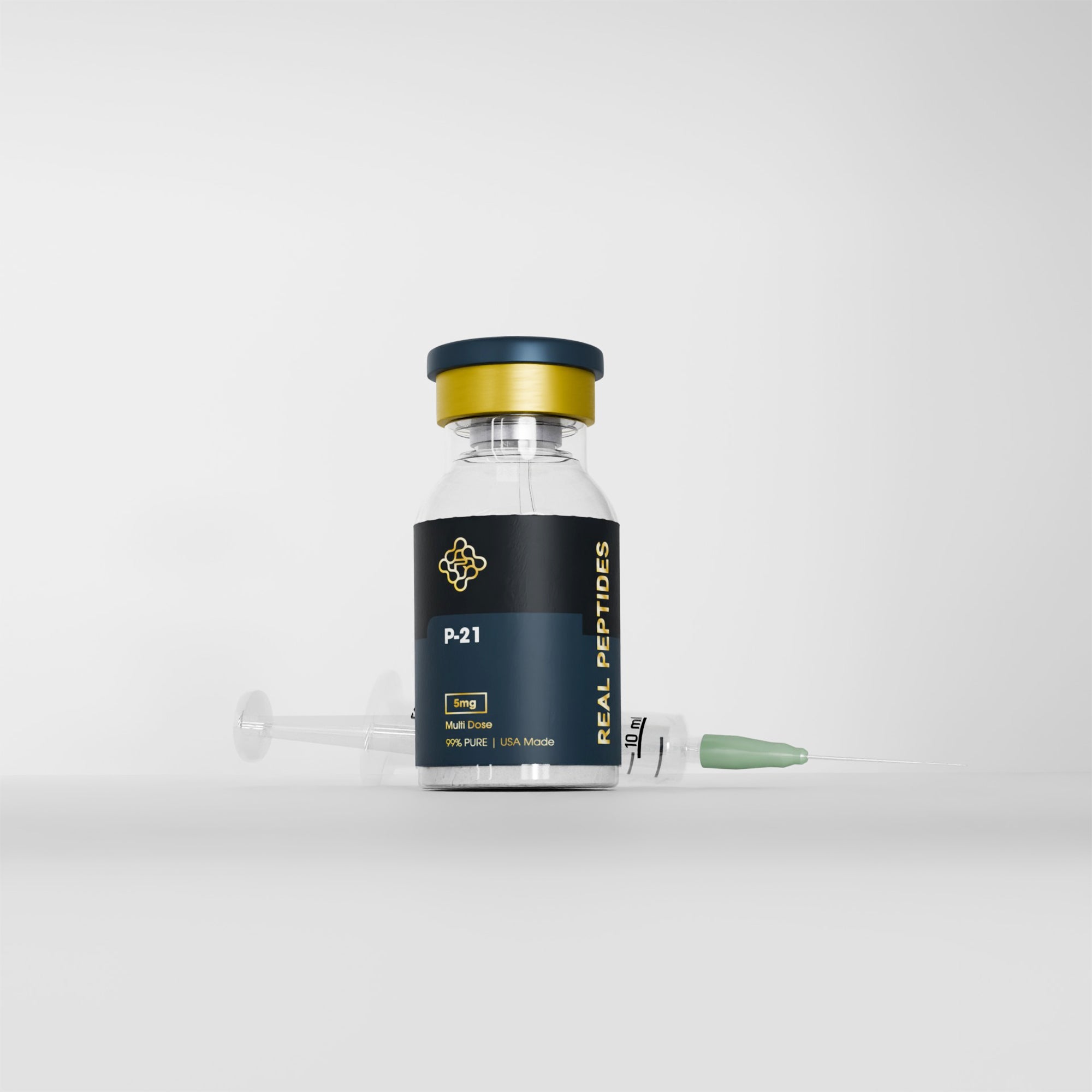
In Stock, Ready to Ship!
$100.00
99% Pure | USA Made | Multi Dosep21 is a key cell-cycle regulatory peptide that lets labs explore cell-cycle arrest, DNA-damage response, and senescence pathways with precision. Each 5 mg vial delivers a ready-to-use peptide that reliably induces p21-mediated checkpoint activation in cell cultures—no extra factors, no guesswork. USA-made, HPLC-verified at ≥ 99% purity, and endotoxin-screened (< 0.1 EU/mg), p21 gives you crisp, reproducible data every time.

Peptides are not ready to use. Must purchase BAC water for reconstitution.
KEY HIGHLIGHTS

p21 (also called CIP1/WAF1) is a naturally occurring 21-amino-acid peptide that binds and inhibits cyclin-dependent kinases, enforcing cell-cycle arrest. In research, p21 peptide is used to dissect cell-cycle regulation, DNA-damage checkpoints, and senescence mechanisms under tightly controlled lab conditions.


Choose p21 when you need a straightforward, single-reagent solution for cell-cycle and senescence research. Its reliable induction of G1/S arrest and clear activation of DNA-damage pathways make it ideal for mapping tumor-suppressor functions, screening genotoxic agents, or studying aging at the cellular level. Manufactured under ISO standards and verified to ≥ 99% purity, p21 peptide ensures your experiments run smoothly every time.
Unlike broader cell-cycle inhibitors, p21 peptide offers high target specificity and physiological relevance—mimicking the natural inhibitor that cells use to pause proliferation after stress. Its clean, short-acting profile minimizes off-target kinase effects, giving you precise control over checkpoint activation and senescence modeling.

Don't hestitate to contact us

End of Content.